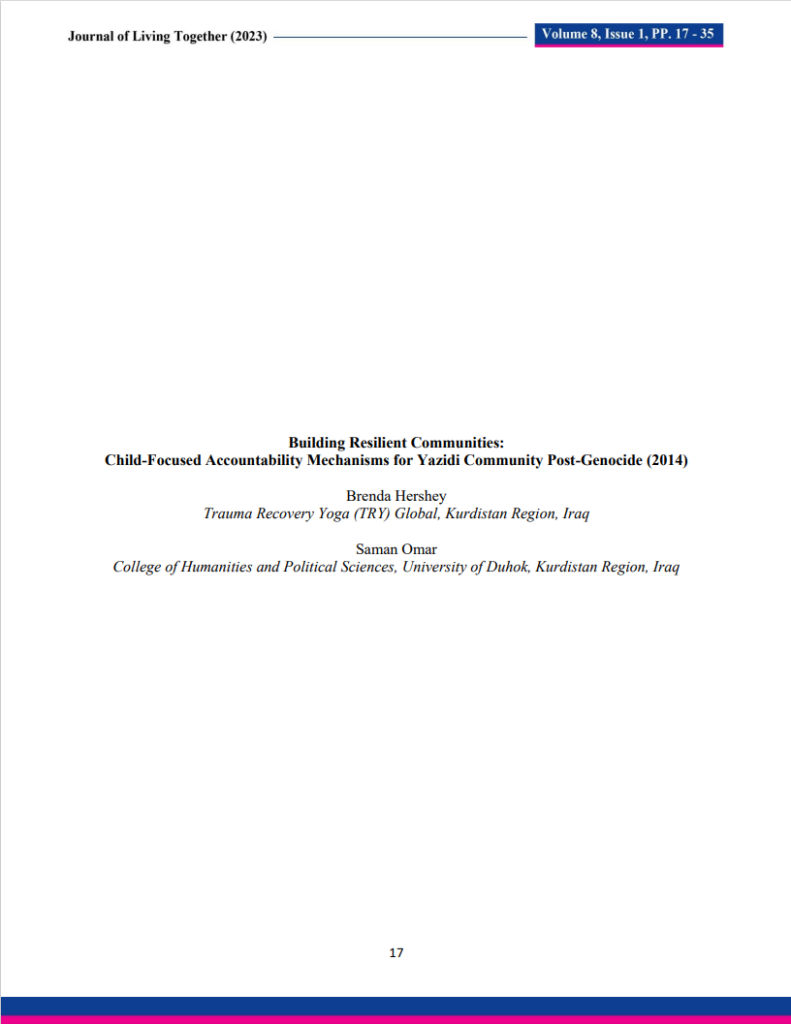Storytelling as a Means for Peace Education: Intercultural Dialogue in Southern Thailand
Abstract:
This article relates to my 2009 field research that focused on the use of peace storytelling as a medium for the transformative learning of peace education. The research was aimed at promoting social reconciliation and intercultural dialogue between youth of Thai-Buddhists and Malay-Muslims in the ongoing intra-state ethno-religious conflict in Southern Thailand. Senehi (2002) argues that storytelling is an instrument for socialisation and education. This is seen as the key to conflict transformation and peacebuilding by motivating people to undergo self-transformation. My study was informed by theoretical frameworks of peace education and conflict transformation that seek to promote constructive peace engagement through nonviolent approaches addressing major issues and increasing understanding, equality, and respect in relationships (Lederach, 2003). Through interviews and focus group sessions, as well as art workshops with the youth of conflicting parties, the case study demonstrates that peace education through storytelling can be utilized as a tool of narrative truth-telling, aimed at restoring inter-personal relationships, healing traumatic experiences and promoting social coexistence. This method can foster intercultural and interfaith dialogue. Further it can contribute to the development of a culture of peace, in which the practice of peace storytelling with a member from ‘the other’ group can be interpreted as a desire to proclaim the “unheard” voices and feelings to be shared with ‘the other’. It connects with the practice of active listening to overcome prejudice, leading towards the transformative learning process. Through the use of storytelling, participants in the study were given opportunities to share their lived experiences, affirm each other, and internalize new possibilities for expressing and working through both conscious and repressed thoughts and feelings together. The process contributed to the participants’ potential to transform a culture of violence into a culture of peace. Peace storytelling may, therefore, be seen as an apparatus for conflict transformation and peace education, as well as an act of art that may lead toward nonviolent social change in a society divided on ethno-religious lines.
Read or download full paper:
Journal of Living Together, 1 (1), pp. 45-52, 2014, ISSN: 2373-6615 (Print); 2373-6631 (Online).
@Article{Anjarwati2014
Title = {Storytelling as a Means for Peace Education: Intercultural Dialogue in Southern Thailand}
Author = {Erna Anjarwati and Allison Trimble}
Url = {https://icermediation.org/intercultural-dialogue-in-southern-thailand/}
ISSN = {2373-6615 (Print); 2373-6631 (Online)}
Year = {2014}
Date = {2014-09-18}
IssueTitle = {The Role of Religion and Ethnicity in Contemporary Conflict: Related Emerging Tactics, Strategies and Methodologies of Mediation and Resolution}
Journal = {Journal of Living Together}
Volume = {1}
Number = {1}
Pages = {45-52}
Publisher = {International Center for Ethno-Religious Mediation}
Address = {Mount Vernon, New York}
Edition = {2014}.



